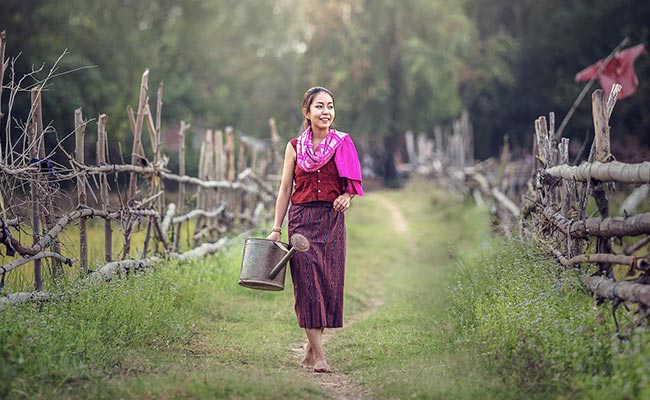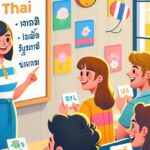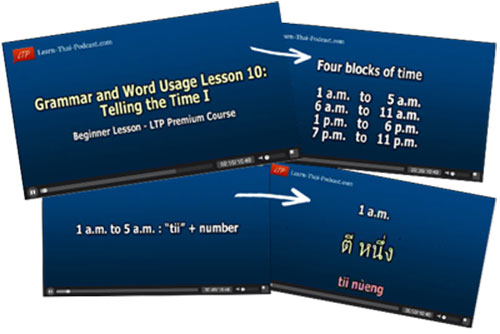Isaan refers to Thailand's northeastern region, the largest area of Thailand. The word is also sometimes spelt Isan or Esarn.
The reason for its separate identity is a history of war and people displacement. Without delving too far into the history here, see Wikipedia for that, many of the people in this region are of Lao ethnicity.
The primary reason for this is the failed Lao Rebellion of 1826, after which mass forced population by Siamese forces took place and thousands of ethnic Lao were transferred to the area.
Of course, in the modern day not all people living in Isaan are of Lao ethnicity. Indeed, many living in the Isaan provinces that run along the Cambodian border – Buriram, Surin, and Sisaket – are of Khmer descent.
Furthermore, there are many people of Chinese descent, and those who have migrated to the northeast in decades past. However, as a rule of thumb, the closer you get to the border of Laos in Nong Khai, the more true Khon Isaan (Isaan people) you are likely to encounter.
That said, the entire region – including Laos, Burma, and Cambodia, Malaysia, and Indonesia – is quite a melting pot, and, when you try to work out who originally came from where, many theories arise, as I wrote about in my Origins of Thai People article.

Isan is best know for its agricultural land and rice farming.
Language & Identity
The people of Isaan (generally) speak Thai-Isaan among each other. People often confuse this with Laotian, which it is derived from but not identical. Unlike Thai, there is no official Isaan script.
This isn't unusual in Thailand. In fact, there are many different regional dialects of Thailand. There is the northern Lanna dialect, which is also closely related to Lao, and a number of tribal dialects from the same region. There is a southern dialect, too, all of which differ from the central Thai spoken in Bangkok.
Most Khon Isaan are able to switch between Thai-Isaan and Central Thai fluently, depending on with whom they are speaking with.
Academics often refer to people from this region as Thai-Lao, although the stigma attached to this label in Thai society means that most refer to themselves as Khon Isaan, or simply Thai.
Some older Isaan folk take pride in their Lao heritage and identify as such, while the younger generations, having grown up in a very different time, generally don't feel the same affiliation.
You'll come across many people from Isaan in Bangkok, because they migrate there for work as taxi drivers, food sellers, restaurant staff, and manual labour jobs.
The provinces of the region are historically poorer than their Southern cousins, with infrastructure and education behind other areas of the Kingdom.
That being said, the region has come a long way, and those who live in, or close to, the cities of Issan, will attest to the huge development and improvements to quality of life that have happened over the past two decades.
40 Easy Isaan Words & Phrases
So, how do you speak Thai-Isaan? And is it drastically different from Thai?
Let's have a look at some common words and questions.
You can copy and paste the Thai script into an email or chat app to impress your Isan partner or friend. To better understand pronunciation, I recommend copying and pasting the texts into Google translate, though you'll find the phonetic versions below quite accurate.
One Word Questions
- What? – ì-yăng / อิหยัง
- When? – dtawn dăi? / ตอนใด๋
- Where? – yùu săi? / อยู่ไส
- How? – jang dăi? / จังได๋
- Why? – bpen yăng / เป็นหยัง
Useful Words
- Yes (correct, right) – maen / แมน (sounds like maan)
- No (not) – bàw /บ่ (sounds like bor)
- Is that right? – maen bàw/? แมนบ่
- Will (going to) – sì/ สิ
- Very, or much – lǎai / หลาย
Everyday Conversation
- How are you? – sa-baai dii bàw / ชำบายดีบ่อ . Or – bpeeng-jang-dǎi / เปงจังได๋ (for friends)
- Thank you very much – kàwp-kun lăai-lăai dêr / ขอบคุณหลายๆเด้อ You can also say: kàwp-kun lăai-lăai / ขอบคุณหลายๆ
- Where are you going? – jâo bpai săi?/ เจ้าไปไส
- How do you go? (how will get there) – bpai jang dăi?/ ไปจังใด๋
- Why don’t you come? = bpen-yăng bàw maa?/เป็นหยังบ่มา
- What are you doing? – hét-ì-yǎng yùu / เฮ้ดอิหยังอยู่
- What time is it? – jàk moong (lɛ́ɛo) / จักโมง (แล้ว)
- Where do you live? (literally, where is your home/house) – bâan yùu săi?/ บ้านอยู่ไส
- When will you come to Thailand? – jâo sì maa bprà-têed-tai dtawn dăi?/ เจ้าสิมาประเทศไทยตอนใด๋
- Westerner (Farang in Thai) – bàk-sǐi-daa / บักสีดา
Eating
- What do you like eat? – jâo mák gin ì-yăng?/ เจ้ามักกินอิหยัง
- Do you like Thai food? – jâo mák aa-hăan tai bàw? / เจ้ามักอาหารไทยบ่
- I like to eat Pad Thai – kàwi mák gin pàd-tai / ข่อยมักกินผัดไท
- Who did you eat with? – gin kào gàp păi?/ กินเข่ากับไผ
- Delicious – sâeb / แซ่บ
- Very delicious – sâeb bàk-kák / แซ่บบักคัก
Love Talk
- You – jâo / เจ้า
- I (male and female) – kàwi = ข่อย (sounds like Khoi)
- Man – pûu bàao / ผู้บ่าว – Woman – pûu săao / ผู้สาว
- I Like You – kàwi mák jâo / ข่อยมักเจ้า
- I love you – kàwi hák jâo / ข่อยฮักเจ้า
- Lovely, pretty, adorable – bpen-dtaa-hák / เป็นตาฮัก
- Beautiful – ngaam / งาม
- Strong – haeng / แฮง
- Nice, cute – bpen dtaa hák / dtaa hák / เป็นตาฮัก / ตาฮัก
- You are lovely – jâo bpen-dtaa-hák tàe/ เจ้าเป็นตาฮักแถะ
- I miss you – kàwi kít-hâwd jâo dêr / ข่อยคิดฮอดเจ้าเด้อ
- Miss someone – kít-hâwd / คิดฮอด
- To love – hák / ฮัก
- Do you like it? – mák bàw ? / มักบ่
Last Updated on



PK says
Aug 18, 2024 at 9:53 am
TheThailandLife says
Aug 19, 2024 at 1:56 pm
PK says
Aug 18, 2024 at 9:47 am
TheThailandLife says
Aug 19, 2024 at 3:15 am
Martin says
Dec 01, 2023 at 7:30 am
TheThailandLife says
Dec 03, 2023 at 2:22 am
Hadi. iran says
But I learned 50% by talking With People.
ใgoo pod phasa' thiy 55555ใ
Oct 24, 2023 at 4:48 am
TheThailandLife says
Oct 24, 2023 at 8:30 pm
Ryan says
Look at it in Lao, it’s ແມ່ນ
Aug 17, 2023 at 3:12 pm
TheThailandLife says
Aug 17, 2023 at 5:01 pm
Rob Young says
Mar 04, 2022 at 5:18 pm
Munnster says
Mar 01, 2022 at 9:43 am
TheThailandLife says
Mar 01, 2022 at 6:03 pm
Andrew Richard Paterson says
cheers
Andy from Oz
Feb 27, 2022 at 10:06 am
TheThailandLife says
Feb 28, 2022 at 5:00 am
JamesE says
Feb 10, 2022 at 8:01 am
TheThailandLife says
Feb 15, 2022 at 11:39 pm